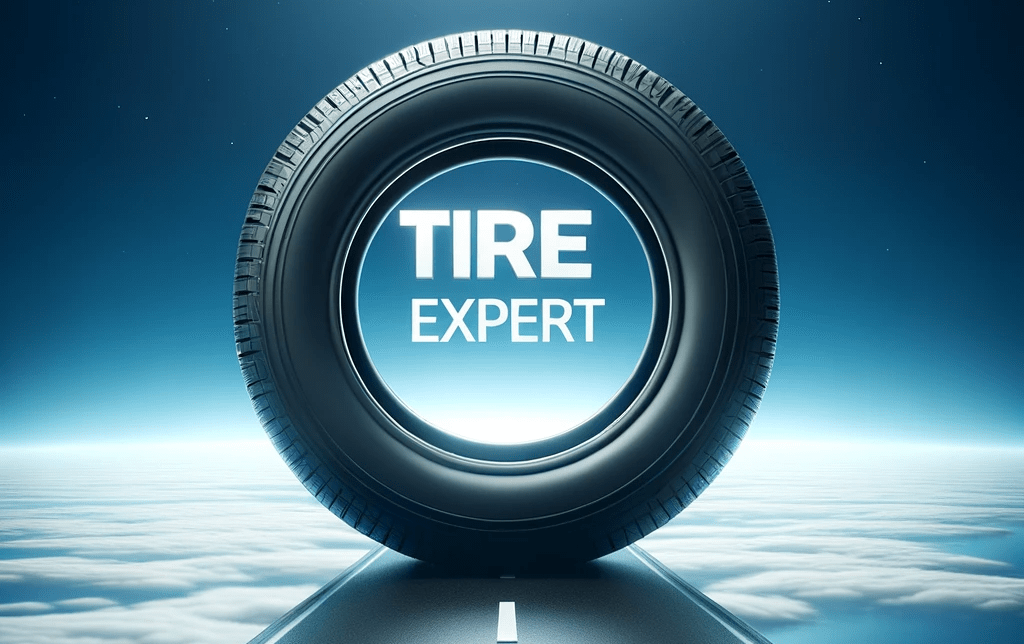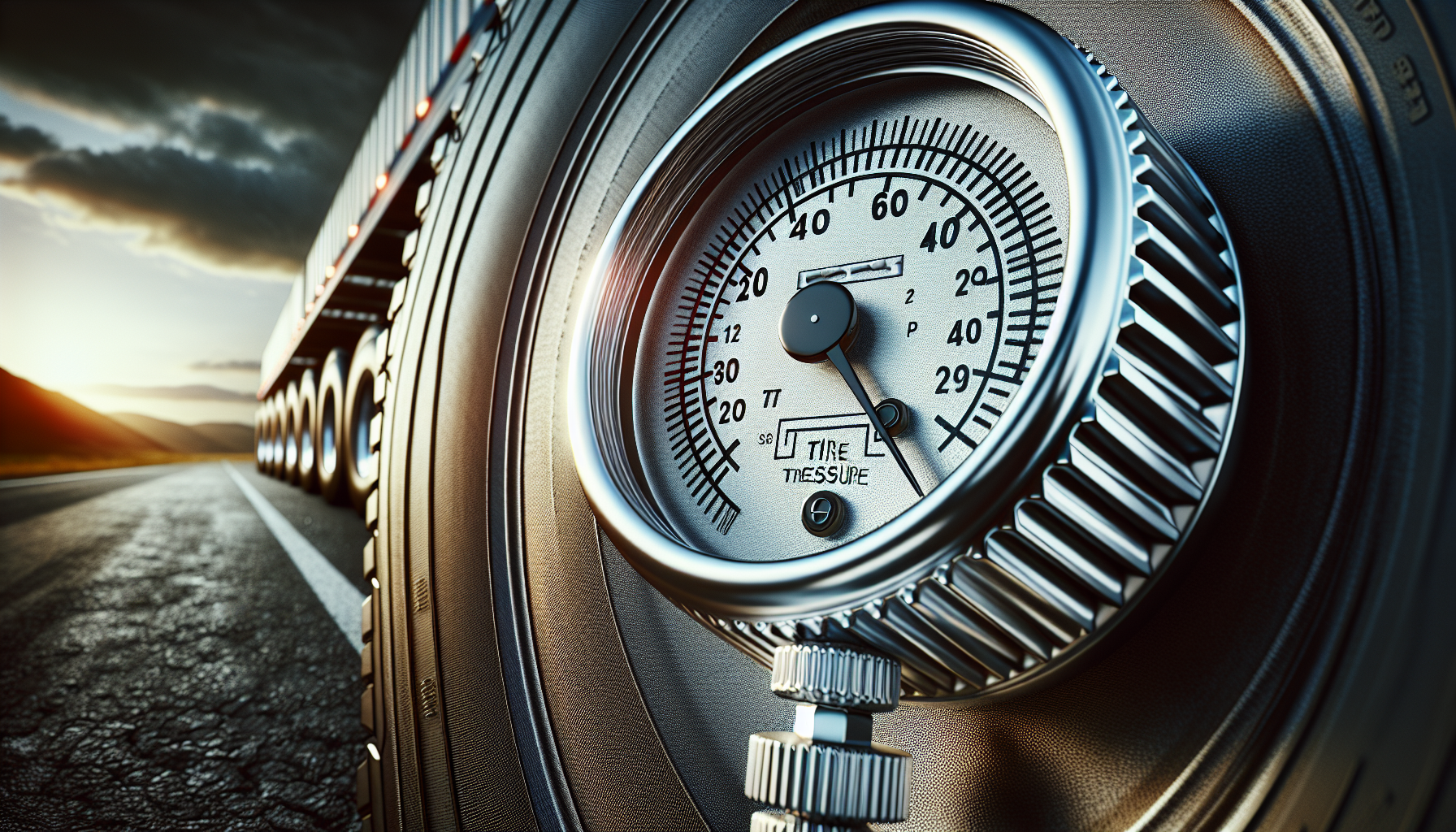Maintaining proper tire pressure for trailers is essential for safe and efficient transportation. Whether you’re hauling goods or embarking on a road trip, the importance of properly inflated tires cannot be understated. In this article, we will explore some simple yet effective tips on how you can ensure that your trailer tires are always at the optimal pressure. So, buckle up and let’s dive into the world of trailer tire maintenance!
Why is maintaining proper tire pressure important?
Safety
Maintaining proper tire pressure is crucial for the safety of both you and your trailer. When tires are underinflated, they have reduced stability and handling capabilities, which can increase the risk of accidents. On the other hand, overinflated tires are prone to blowouts, compromising your safety on the road. By keeping your tire pressure at the recommended levels, you can ensure optimal performance and minimize the chances of accidents.
Fuel efficiency
Proper tire pressure plays a significant role in maintaining fuel efficiency. When your tires are underinflated, they create more rolling resistance, which means your engine has to work harder, resulting in increased fuel consumption. In contrast, overinflated tires can lead to uneven wear, reducing fuel efficiency. By regularly checking and maintaining proper tire pressure, you can maximize your fuel economy and save money at the pump.
Tire lifespan
Maintaining the correct tire pressure also extends the lifespan of your trailer tires. Underinflated tires result in excessive flexing of the sidewalls, causing them to overheat and wear out faster. Over time, this can lead to premature tire failure. Conversely, overinflated tires wear out unevenly, reducing their lifespan. By maintaining proper tire pressure, you can ensure even tire wear and prolong the life of your trailer tires.
Load capacity
Proper tire pressure is essential for determining the load capacity of your trailer. When tires are underinflated, they have a reduced load-carrying capacity, which can lead to tire failure and potentially dangerous situations if you exceed the recommended load limit. On the other hand, overinflated tires may have a higher load capacity but compromise the tire’s ability to absorb shocks from the road. It is crucial to maintain the recommended tire pressure to ensure that your trailer can safely carry its intended load.
Understanding trailer tire pressure
Inflation pressure
Tire pressure, often referred to as inflation pressure, is the measure of air pressure inside a tire. It is typically expressed in pounds per square inch (psi) and can vary depending on the type of tire and the load it is carrying. It is important to find the correct inflation pressure for your specific trailer tires to ensure optimal performance and safety.
Cold inflation vs. hot inflation
Cold inflation pressure refers to measuring tire pressure when the tires are cold, meaning they haven’t been driven on for at least three hours. Cold inflation pressure is significant because tires heat up as they roll, causing the air inside to expand. As a result, checking and adjusting tire pressure when they are hot can lead to inaccurate readings. It is always best to monitor and adjust tire pressure when the tires are cold.
Recommended tire pressure
Every trailer has specific recommended tire pressure that can be found in the owner’s manual or on a sticker located on the trailer itself. It is crucial to follow these recommendations to ensure the optimal performance and safety of your trailer. The recommended tire pressure takes into account factors such as the trailer’s weight, load capacity, and tire size.
Maximum tire pressure
While it is essential to maintain the recommended tire pressure, it is equally important not to exceed the maximum tire pressure specified by the tire manufacturer. The maximum tire pressure indicates the highest safe pressure that the tire can handle. Exceeding this limit can lead to tire blowouts and other dangerous situations on the road.
Load range
Tires are categorized into load ranges, which specify their maximum load-carrying capacity at a specific tire pressure. Load ranges are important to consider when selecting tires for your trailer, as they determine the tire’s suitability for carrying specific loads. It is crucial to choose tires with the appropriate load range for your trailer to ensure safe and efficient operation.
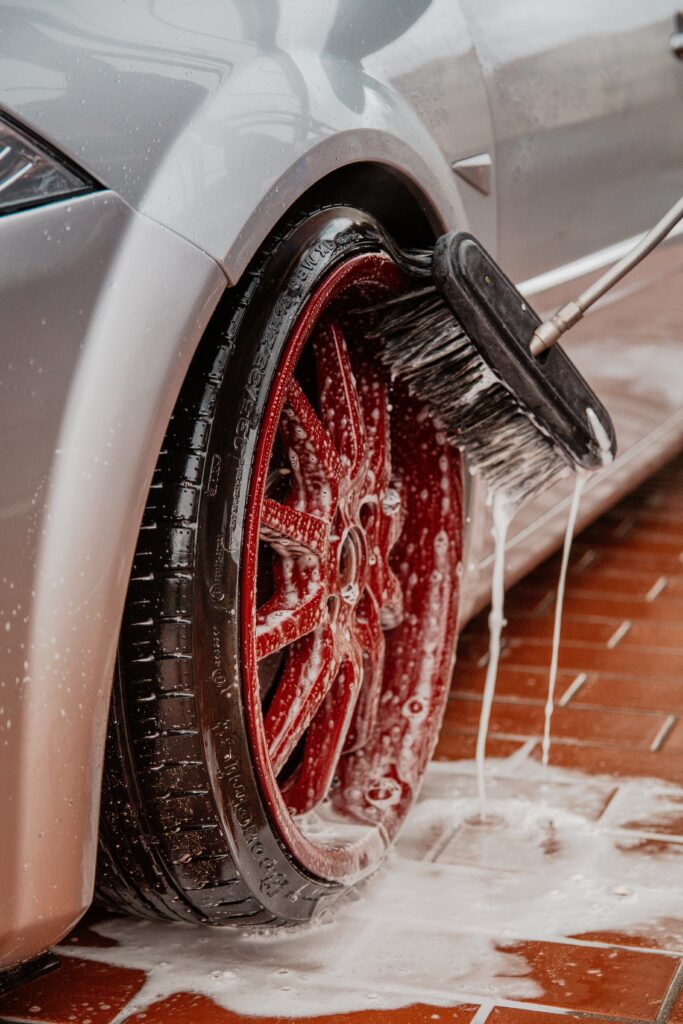
Methods to check tire pressure
Using a tire pressure gauge
One of the most common methods to check tire pressure is by using a tire pressure gauge. These handheld devices allow you to measure the air pressure and ensure it matches the recommended level. To use a tire pressure gauge, simply remove the valve cap from the tire, place the gauge onto the valve stem, and press firmly to get an accurate reading. If the pressure is below the recommended level, you can add air until it reaches the correct psi.
Using a tire pressure monitoring system (TPMS)
Another method to check tire pressure is by using a tire pressure monitoring system (TPMS). TPMS is a technology that uses sensors to monitor the air pressure inside your trailer tires. These sensors transmit the data to a display unit inside the vehicle, allowing you to monitor the tire pressure in real time. TPMS provides a convenient way to stay informed about your tire pressure and quickly detect any abnormalities.
Visual inspection
In addition to using dedicated tools, a visual inspection can also help you identify any noticeable changes in tire pressure. Look for visible signs of underinflation or overinflation, such as bulges or sagging sidewalls. Uneven tire wear can also indicate incorrect tire pressure. While a visual inspection can provide some insight, it is not as accurate as using a tire pressure gauge or TPMS. Therefore, it is always recommended to use one of these methods to obtain an accurate reading.
Steps to maintain proper tire pressure
Check tire pressure regularly
Regularly checking your trailer tire pressure is crucial to maintaining proper inflation. Make it a habit to inspect your tires at least once a month, or even more frequently if you use your trailer extensively. By catching any changes in pressure early, you can address them promptly and prevent any potential safety risks.
Inflate or deflate as needed
After checking the tire pressure, it is essential to inflate or deflate the tires as needed to maintain the correct level. If the pressure is too low, use an air compressor to add air until it reaches the recommended level. On the other hand, if the pressure is too high, you can remove excess air using a tire pressure gauge and releasing air from the valve stem. Always be cautious not to overinflate or underinflate the tires.
Consider load weight
When maintaining proper tire pressure for your trailer, it is essential to consider the weight of your load. Heavier loads require higher tire pressure to ensure optimal performance and prevent tire damage. Be sure to check the load capacity of your tires and adjust the pressure accordingly. If your load varies, make sure to adjust the tire pressure accordingly for each load.
Use manufacturer’s guidelines
Always refer to the manufacturer’s guidelines and recommendations when it comes to maintaining proper tire pressure. The manufacturer’s guidelines take into account specific requirements and considerations for your trailer and tires. By following these guidelines, you ensure that your trailer is operating at its best capacity and reduce the risk of accidents or premature tire wear.
Keep tires clean and free from debris
Regularly cleaning your trailer tires is crucial to maintaining proper tire pressure. Debris such as mud, rocks, or even road salt can accumulate in the tire treads and around the valve stems, potentially causing damage or air leaks. By keeping your tires clean and free from debris, you can prevent potential issues and ensure accurate tire pressure readings.
Store trailer properly
Properly storing your trailer when not in use is also important for maintaining tire pressure. Store your trailer in a cool, dry, and well-ventilated area to prevent excessive tire wear and pressure changes. If possible, elevating the tires off the ground using tire cradles or blocks can help distribute the weight evenly and prevent flat spots from forming.
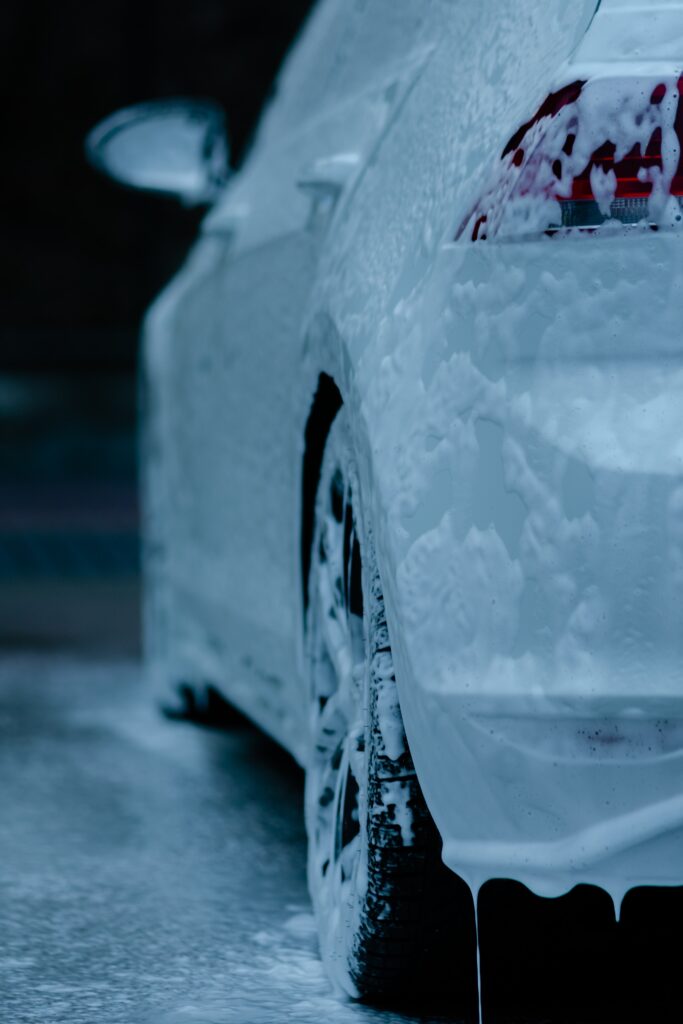
Precautions and tips for maintaining tire pressure
Do not overinflate
While it may be tempting to overinflate your trailer tires to maximize load capacity, it is important not to exceed the maximum tire pressure specified by the manufacturer. Overinflated tires are more prone to blowouts due to increased stress on the tire structure. Always adhere to the manufacturer’s recommendations to ensure optimal safety and tire performance.
Avoid underinflation
Underinflated tires pose a significant safety risk and can result in reduced handling, increased braking distances, and tire overheating. Regularly check your tire pressure and maintain it at the recommended levels to avoid underinflated tires. Remember that tire pressure can decrease over time, so frequent monitoring is essential.
Avoid overloading
Overloading your trailer can put excessive strain on the tires and lead to premature tire wear or even tire failure. It is crucial to adhere to the load capacity specified by the manufacturer and ensure that the weight is distributed evenly. Overloading not only affects tire pressure but also compromises the overall stability and handling of your trailer.
Monitor tire wear
Regularly inspecting your trailer tires for signs of wear is crucial to maintaining proper tire pressure. Uneven tire wear can indicate issues with alignment, suspension, or improper tire pressure. By monitoring tire wear, you can identify problems early on and take appropriate measures to rectify them, ensuring optimal tire performance and safety.
Replace damaged or worn-out tires
If you notice any signs of damage or excessive wear on your trailer tires, it is important to replace them promptly. Cracks, bulges, or tread wear beyond the recommended limit are indications that the tire’s structural integrity is compromised. Continuing to use damaged or worn-out tires can lead to tire failure and pose a severe safety risk.
Seek professional help if unsure
If you are unsure about how to maintain proper tire pressure or suspect any issues with your trailer tires, it is best to seek professional assistance. A qualified tire specialist or mechanic can inspect your tires, provide accurate pressure recommendations, and address any concerns you may have. It is always better to be safe and confident in your tire maintenance efforts.
Best practices for tire pressure maintenance
Maintain a tire pressure log
Keeping a tire pressure log can help you track and monitor changes in tire pressure over time. By logging the date, time, and tire pressure readings, you can identify patterns or deviations from the recommended levels. This information can be valuable when troubleshooting any tire-related issues and ensuring consistent maintenance practices.
Check tire pressure before every trip
Before every trip, make it a habit to check your trailer tire pressure. Even if you recently checked the pressure, external factors such as temperature changes or driving conditions can affect tire pressure. By conducting a quick check before hitting the road, you can address any discrepancies and ensure a safe and smooth journey.
Consider the impact of external factors
External factors such as temperature fluctuations can cause changes in tire pressure. Cold temperatures can decrease tire pressure, while hot temperatures can increase pressure. Additionally, high altitudes can also affect tire pressure. When maintaining proper tire pressure, consider these external factors and adjust as necessary to ensure optimal tire performance.
Keep backup tires
Having a set of backup tires can provide you with peace of mind and ensure that you can replace any damaged or worn-out tires promptly. Keep an extra set of tires specifically for your trailer and store them properly. This way, you will be well-prepared to handle any unexpected tire issues and minimize downtime.
Regularly inspect the valve stems
The valve stems, responsible for maintaining tire pressure, are crucial components of your trailer tires. Regularly inspecting the valve stems for any cracks, leaks, or damage is important to prevent air loss. Furthermore, ensure that the valve caps are tightly secured to protect the valve stems from dust, debris, and moisture.

Common challenges in maintaining proper tire pressure
Temperature fluctuations
Temperature fluctuations can significantly impact tire pressure. As mentioned earlier, cold temperatures can cause tire pressure to decrease, while hot temperatures can lead to increased pressure. It is important to consider these temperature changes and adjust tire pressure accordingly to maintain proper inflation levels.
Driving on rough roads
Frequent driving on rough roads can pose challenges in maintaining proper tire pressure. Potholes, speed bumps, and gravel roads can cause excessive tire stress and lead to air leaks or damage. It is crucial to drive cautiously and inspect your tires regularly after traversing rough terrain.
Air leaks
Air leaks can occur due to various reasons, such as valve stem damage, punctures, or bead seal issues. If you notice a consistent decrease in tire pressure or hear hissing sounds, it may indicate an air leak. Addressing air leaks promptly can prevent excessive tire wear and potential tire failure.
Valve stem issues
Valve stems are vulnerable to damage, as they are constantly exposed to the elements and are subject to wear and tear. Cracked or damaged valve stems can result in air leaks and inaccurate tire pressure readings. Regularly inspecting and replacing valve stems as needed is important to maintain proper tire pressure.
Importance of professional assistance in tire maintenance
Regular maintenance by a professional
While there are steps you can take to maintain proper tire pressure, it is crucial to have your trailer tires regularly maintained by a professional. Tire specialists can assess the overall condition of your tires, including tread depth, tire wear, and potential damage. They can also provide expert advice on tire pressure and recommend any necessary repairs or replacements.
Proper tire balancing and rotation
Tire balancing and rotation are essential for even tire wear and optimal performance. Professional assistance ensures that your trailer tires are correctly balanced and rotated, minimizing any vibrations or uneven wear patterns. Regular balancing and rotation can also help identify any potential issues with alignment or suspension, ensuring safe and efficient operation.
Alignment checks and adjustments
Proper wheel alignment is crucial for maintaining tire pressure and preventing uneven tire wear. Over time, the suspension components of your trailer may become misaligned, causing tires to wear unevenly. A professional alignment check and adjustment can help correct these issues, ensuring a smooth ride and extending the lifespan of your tires.
Professional inspection of tire condition
A professional inspection of your trailer tires can provide a comprehensive assessment of their condition. This includes evaluating tire tread depth, identifying any signs of damage or wear, and assessing overall tire performance. Professional assistance ensures that any potential tire issues are addressed promptly and effectively, minimizing the risk of tire failure.
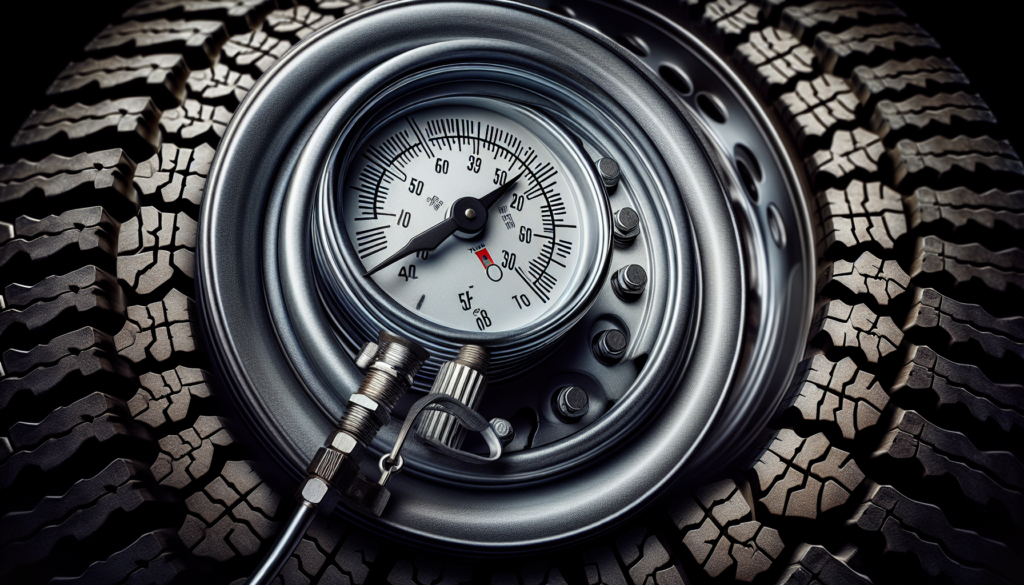
Conclusion
Maintaining proper tire pressure for your trailer is essential for safety, fuel efficiency, tire lifespan, and load capacity. By understanding the importance of tire pressure, utilizing appropriate methods to check pressure, and following best practices for maintenance, you can ensure the optimal performance and longevity of your trailer tires. Additionally, seeking professional assistance when needed and addressing common challenges in tire pressure maintenance will further enhance your safety on the road. Remember, regular monitoring, proper inflation, and diligent oversight are key in maintaining proper tire pressure for trailers.
